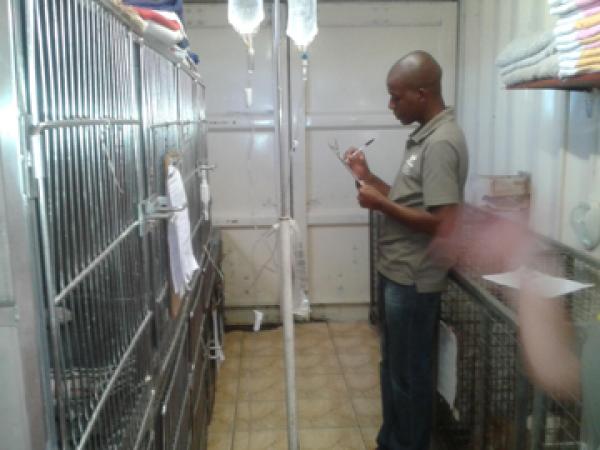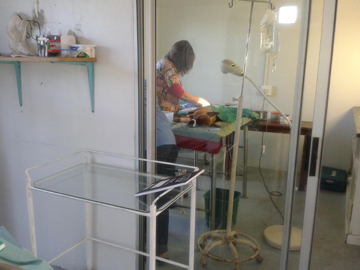Attitudes to pets have changed significantly in recent years in Khayelitsha

Started by a community member 17 years ago, Mdzananda Animal Clinic in Khayelitsha now treats up to 1,000 animals a month.
“People’s attitudes [in Khayelitsha] towards pets has really changed over the years,” says the clinic’s Marcelle van Zyl. “There has always been that mentality that people from our townships and informal settlements don’t really care about animals. But when I started working here, I saw the love people have for their pets. I see how heartbroken they are when they have to leave their pets in the hospital overnight, and the tears of joy when their pets are healed.”
Mdzananda Animal Clinic offers an extensive service to the community for animals. People can bring in their pets for a basic consultation and check-up. In severe cases, where a pet needs to go to a hospital, there is a hospital available in the clinic where pets can stay overnight or as long as they need to recuperate.

Spooky at the clinic with a broken vertebrae. Photo by Mary-Anne Gontsana.
The clinic also has a surgery which offers an orthopaedic service for animals who need their bones fixed or X-rays taken.
Operating from seven containers between houses, the clinic is stationed on Govan Mbeki Road right inside the community.
It is mainly funded by the International Fund for Animal Welfare, with Dogs Trust funding the physical side of things like the building and sponsoring a vehicle.
Van Zyl says 95% of animals brought into the clinic are cats or dogs, but they did get the occasional pig, cow and sheep.
“We had one occasion where a man came in carrying a pillow cover and inside it was a snake. Our vet was not too happy about it, but the job had to be done.”
The most common reason animals were admitted to the clinic was due to being hit by motor vehicles.

Veterinarian Dr Theresa Groenewald performs surgery on a dog. Photo by Mary-Anne Gontsana.
The most severe animal cases are from parvovirus. “The animal continuously vomits and has diarrhoea; this could lead to death. Dogs pass it on to each other and they can get it by eating rubbish or faeces. We’ve had an outbreak of the parvovirus before where one pup infected the other dogs. They had to be isolated. Others unfortunately died and some had to be put down.”
The clinic also operates an education centre which doubles up as a waiting room. Educational videos are played on the televisions. Plans are in place to bring in educational officers to educate owners on basic pet care, while waiting to have their animals examined.
Next: Mthethwa attends politically coloured crime summit in Khayelitsha
Previous: Struggling Zimbabwean author writes about the challenges of living and dying on the Cape Flats

This article is licensed under a Creative Commons Attribution-NoDerivatives 4.0 International License.


